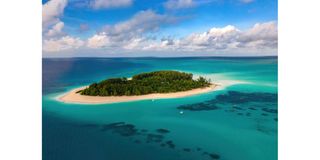Zanzibar revises marine park entry fees

Unguja. The Zanzibar government has announced a new set of entry fees for visitors to marine conservation zones across the islands of Pemba and Unguja, in a move aimed at strengthening the management of marine protected areas while supporting sustainable tourism.
The changes, which come into effect on September 1, 2025, were confirmed in a public notice issued by the Ministry of Blue Economy and Fisheries, through its Department of Marine Conservation.
According to the updated tariff, foreign tourists who are not East African citizens will be required to pay $10 to access regular marine conservation areas. East African citizens, including Tanzanians, will pay a subsidised fee of Sh5,000, while non-East African residents of Tanzania will be charged $5.
The Ministry, however, clarified that charges for entry into Special Areas—premium zones within marine parks with enhanced biodiversity or conservation significance—will remain unchanged.
These fees stand at $25 for non-East African tourists, $10 for East African citizens, and $12 for non-East African Tanzania residents.
The government said the adjustments are part of ongoing efforts to strike a balance between conservation and tourism revenue, while ensuring that the country’s marine resources are protected for future generations.
“These changes are designed to reflect the growing importance of our marine ecosystems and to ensure that tourism contributes meaningfully to their preservation,” the announcement read in part.
The Ministry also reminded the public that additional fees related to marine conservation are detailed in the Marine Conservation Area Regulations of 2014.
Zanzibar’s marine conservation areas—known for their coral reefs, diverse marine life, and pristine waters—are a key attraction for eco-tourists and researchers.
The revision of entry fees follows broader reforms in the blue economy sector, which remains central to Zanzibar’s long-term development plans



